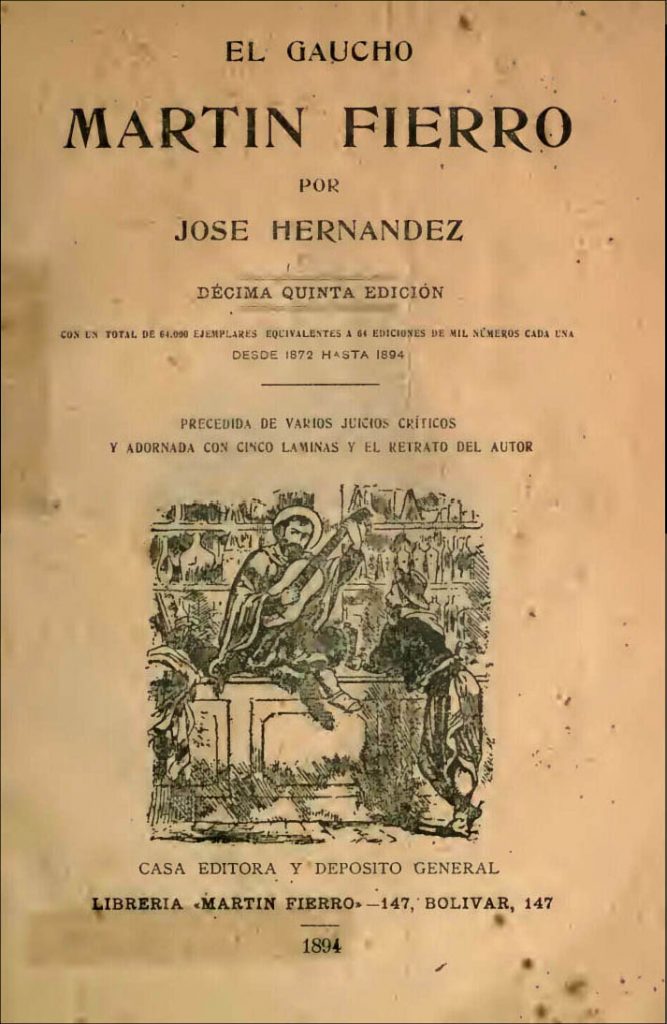El Gaucho Martín Fierro by José Hernandez (1872) is an epic poem that defined the gaucho in the popular imagination. It is considered the foundation of Argentine literature.
About Martín Fierro
Like the American cowboy, after his decline, the South American gaucho was romanticized in popular culture.
In the story, Martín Fierro is a poor, but honest gaucho living happily with his wife and children on a ranch. He is forced into the army to fight the natives. He deserts and comes back for his family, but finds they are gone. In despair Fierro gets into trouble and kills another gaucho. He becomes a nomadic outlaw chased by the police. A policeman Sergeant Cruz is impressed by Fierro’s courage and joins him. They seek a better life with the natives.
The poem was written near the end of the Argentine Civil Wars which created the modern Argentine state. It was a time of tension between Europe-focused groups in Buenos Aires and traditional landowners and the people who worked the land. Argentina still has this dual identity. Buenos Aires and the rest of the country are two different worlds.
https://youtu.be/y-Olc5DfN_I
The story became so popular that Hernandez wrote a follow-up, La Vuelta de Martín Fierro in 1879.

